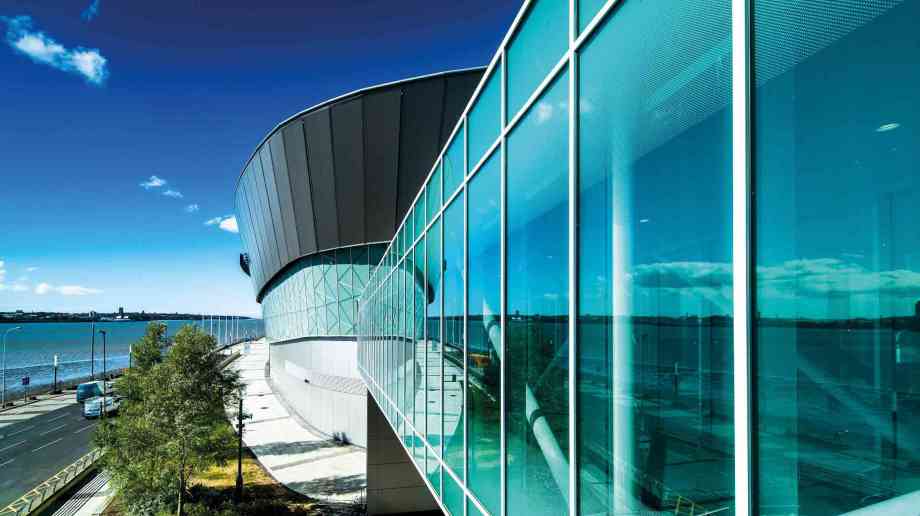Sue Robb of 4Children talks to Julie Laughton and Alison Britton from the Department for Education about the role of childminders in delivering the 30 hours free entitlement.

Where to look when you are about to book
Is it all about location, location, location? Government Business provides a holistic analysis of what the public sector should look for when booking facilities for conferences and events.
Many cities claim to be the ideal venue destination, and many facilities encourage clients to look no further then their array of offerings – but what exactly should someone be looking for when seeking to book an event for their company or organisation? It it all about best value for money? Is simple best? Can scenery be overlooked? Or are the views all that matter? The answer comes down to the purpose of the meeting and the rest becomes easy.
The days when clients were happy to sign off expenditure without question of its relevance are over. Every penny has become accountable and there is a determination to optimise every minute of venue hire time. For the events sector, this has led many to make their offerings cheaper. For others, it has meant singling in on one aspect of its offerings that will make future clients book their facilities – and it is these specialities which you should be encouraged to seek.
The scenic route
Particularly at this time of the year – July, August, September – there is an understandable appeal to conferencing venues which have just as much to enjoy outside as in.
While the event or meeting can take place inside or outside, depending on weather, purpose and preference, there is something about a picturesque setting that draws in clients, particularly if the event is being hosted over a number of days with spare time allotted for exploring the surrounding areas. Price and availability are key factors in decision making, but research has shown that, more often than not, location is given higher preference when choosing a meeting venue.
Places to walk, explore and spend time outside of the venue lead many clients to places such as Brighton and other seaside locations. Frequently heralded as the sunniest place in the UK, Brighton’s Eastbourne setting presents a premier conference destination on the south coast. Just an hour and a half from London, the iconic white chalk cliffs of Beachy Head and the acres of spectacular South Downs National Park countryside that surround it are just two images that come to mind.
Darren Johnson, Convention Bureau sales manager at Visit Brighton, who work in and alongside Eastbourne, said: “Coastal destinations are particularly popular with city-wide events, often spanning two or three days. The close proximity of venues, hotels and leisure offerings are a real plus, creating a ‘one-stop-shop’ style destination focused product for both the business and leisure traveller. This destination package often comes with the mutual cooperation of city stakeholders that give the ability to provide delegates with a real ‘wow’ factor.”
Peter Hampson, director of the British Resorts & Destinations Association, also explains that: “According to the United Kingdom Tourism Statistics (2008), the volume of overnight business trips to the UK coast is estimated at around 3.3 million a year, bringing with it an estimated spend of just under half a billion pounds. Of course, coastal resorts have not been immune to recent economic pressures but nonetheless, these figures clearly illustrate the scale and worth of business tourism in seaside resort towns.”
The promise of fresh sea air and a relaxed ambiance has always been a natural draw for visitors to the British coast. Much of the popularity stems from the connotation of coastal areas as relaxing, a trip of escaping the busy normalities of daily work. Many less formal events will involve staff undertaking fun, social and interactive activities – such as team building exercises.
Considering culture
If the seaside is not quite the location that is desired, there is plenty to be gained from choosing to have a meeting, conference or event in a cultural hot spot. Arena and Convention Centre Liverpool (ACC Liverpool) is a state-of-the‑art, international conference centre situated at the heart of Liverpool’s Waterfront and just a stone’s throw from the popular Albert Dock area, which has revolutionised the city’s conference offering since it opened in 2008.
As the city of The Beatles, UNESCO World Heritage site and host of the International Festival for Business in 2014 and 2016, culture is one thing that Liverpool has never lacked. Liverpool is a world-class destination for both leisure and business travellers, with more national museums than any other UK city outside of London. What is less well known is that all of these museums can be hired for meetings and conferences, offering some truly unique backdrops for your event. One of the most visible is the Museum of Liverpool itself, a stunning £72 million structure at the heart of the waterfront, which, with its modern galleries overlooking the Mersey, can host up to 1,000 for a drinks reception or 200 in theatre style.
Comparitively, Glasgow, not short of culture itself following the Year of Food and Drink and the upcoming Year of Innovation, Architecture and Design, is host to the Edinburgh International Conference Centre (EICC) and the SSE Hydro, two of the most recognisable destinations across Scotland.
The pull of the Capital
London has a unique environment that nurtures talent, a work ethos that supports business growth and a unique diversity that allows innovation to thrive – there is no denying that London has all the key ingredients to allow every person or business to excel to new extraordinary heights. Many are attracted by London’s dazzling culture and its unparalleled heritage whilst others are drawn to London’s constantly changing physical and economic landscape.
But why does London have such a pull over event planners? Many businesses, local, national and international, have there offices or headquarters in London and are therefore already aware of it’s array of meeting spaces, buzzing media industry and catering capabilities. For those residing and working away from London, the capital can be something of a treat – from sight-seeing to shopping, and green parks to eating out. London offers visitors the best of the old and the new. Historic landmarks and contemporary venues sit side-by-side and many can be hired for meetings or private events. The Shard, the London Eye, Tower of London, St Paul’s Cathedral, Kew
Gardens and the Olympic Park are just some of the headline acts. Another major benefit of London’s cultural offering is that many of the events or museums in the capital are free – which is a huge cost saving to any delegate and a perfect way to compliment any business programme or offer a huge cost saving in your own downtime.
With ever-rising numbers of business and leisure visitors to London, a variety of new hotels are opening across the capital. Amongst the hotels opening in 2016 is the InterContinental London – The O2, with 20 multifunctional meeting rooms and a 3,000sqm ballroom, which will hold up to 3,000 delegates.
Going green
Following the success of the Olympic Games in London in 2012, the events industry took a bold approach to creating their own legacy. Large events now have ISO 20121 to help them bring sustainability to their supply chains and event planning – considering energy output and monitoring waste and water usage. The ‘green tourism’ brand is becoming increasingly well-known across the country, with venues reducing the environmental impact of the meeting for their clients. For organisations aiming to reduce their energy output on a day to day basis, such an incentive can be very appealing.
As such, since it was first set up in 1997, the Green Tourism Business Scheme (GTBS) has been championing the cause of sustainable tourism in the UK, and with over 1,800 UK based members, it is the most successful scheme of its type in the world.
Sustainable venues can be spotted in a number of ways. It may originate in the menu they supply, with local, seasonal foods being cooked, or it could be the sponsor or donation that they recommend. ACC Liverpool, completed in 2005, was designed to produce half the CO2 emissions it would without any environmentally-friendly measures, whilst using 20 per cent less electricity. The venue has been a GTBS Gold holder since 2008. Lighting is high efficiency and controlled by motion detection, while the rainwater collected on the roof is used to support flushing toilets, accounting for about 40 per cent of the water used for toilets in the venue. Furthermore, five, 20-metre low noise wind turbines on the river side of the venue contribute to their electricity supply. This means that they have a reduced impact per attendee and they continue to develop projects to ensure all events have sustainable features.
Corporate responsibility is influencing the market, and a lot of clients will book again the following year, or even later that same year, if they find the venue to their liking. When people buy into events and venues it’s often because of the stories they can share or become a part of. We see this regularly with concerts, sports events or high profile restaurants. Being part of an ongoing success story can be very good publicity for a company, and green tourism thrives on that particular aspect of their venue.
A seasonal present
The annual Christmas party can be both a joy and a pain to organise. Traditionally, the end of year get-together is an event where the organiser is aiming to show generosity and gratitude, but money and tight budgets can often force an organiser’s hand.
With money coming into consideration, the importance of good planning should not be undermined.
Vicky Hogg, product manager at Office Christmas, the UK’s largest Christmas party agent, which books over 80,000 people into Christmas parties each year, says: “The Christmas party is an essential part of company life and is a marker of value and appreciation for staff. At the end of a tough year, there is no better value for money way to say thank you to staff and boost morale going into the New Year.
You don’t have to spend vast amounts of money, but putting time into thoughtful planning and careful consideration of your guests’ needs will deliver a successful event.”
Planning should start early. Numbers are difficult to cement, but finding a venue that can deliver beyond your expectations without cutting corners can be very beneficial. Fortunately, there is a means of choosing a quality Christmas party venue that is gaining momentum. Endorsed by Visit England, adopted by hundreds of venues, and increasingly demanded by event organisers is the Meeting Industry Association’s AIM (Accredited in Meetings), a national standard for meetings and events.
These professional event buyers, from both the public and commercial sectors, demand AIM because they know the standard enables them to achieve the most from their budgets, with no unforeseen or surprise costs.
Because of the stringent grading criteria an AIM venue has achieved, event organisers are confident their event is in the hands of hard working, well trained, highly motivated people, and all their needs will be met with the minimum of fuss.
Christmas parties can be expensive, but there are ways to save money. Considering weeknights can get the same party for up to 40 per cent less than a Friday or Saturday. Non-traditional venues can create a great atmosphere and unusual spaces in great locations at a fraction of the cost, and are also capable of holding huge numbers of guests with state of the art sound and lighting already in-situ.
Shared parties are also becoming an attractive alternative to the traditional exclusive event that large groups would typically book. It is a money saving option and with private dining options you have the privacy to deliver speeches, awards and special thanks whilst also benefiting from all the atmosphere of a bigger celebration with more entertainment than would ordinarily have been within reach.
Company Focus
Founded in 1792, Don & Low began as a small woven textiles manufacturer in Scotland, gradually expanding its operations and diversifying its production capabilities over the years. Through strategic investments in technology and a relentless pursuit of quality, Don & Low has evolved into a leading vertically integrated manufacturer, specialising in the production of construction membranes, geotextiles, and industrial textiles & yarns.
Event Diary
UKREiiF has quickly become a must-attend in the industry calendar for Government departments and local authorities.
The multi-award-winning UK Construction Week (UKCW), is the UK’s biggest trade event for the built environment that connects the whole supply chain to be the catalyst for growth and positive change in the industry.
The organisers of the world’s largest dedicated hydrogen event, World Hydrogen 2024 Summit & Exhibition have announced it’s return to Rotterdam in May 2024, with an expansion of a whole extra summit day. Sustainable Energy Council (SEC) are partnering with the Government of the Netherlands, the Province of Zuid-Holland, the City of Rotterdam, and the Port of Rotterdam to host an extended, larger scale Summit in 2024, to expand the event to meet the surging demand.
Supplier Profiles
Neat Seats
Neat Bins, Part of Neat Seats Ltd is a company that specialises in cleaning all your wheeled bins
Would you like to become a Gas Safe Engineer, Electrician or a Renewable engineer.
Let us show you the way…….
Latest Features
Professor Harith Alani, director of the Knowledge Management Institute at the Open University explains how AI can be used for good and bad.
Alex Lawrence, head of health & social care, techUK sets out techUK’s Five Point Plan for CareTech.












